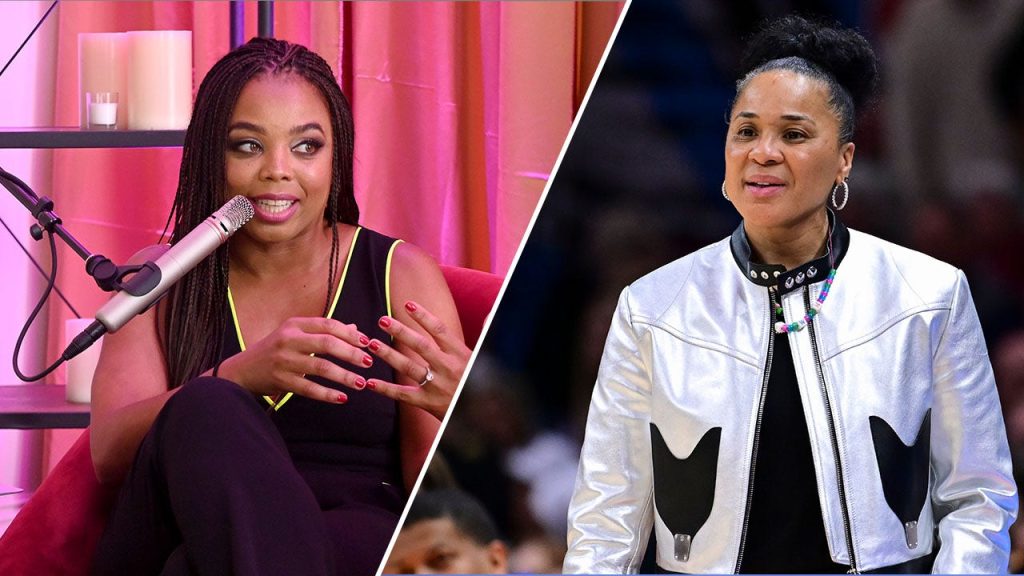Italian boxer Angela Carini expressed regret and sought to apologize to Imane Khelif, who was barred from competing in the women’s world championships due to having male XY chromosomes. Former ESPN writer Jemele Hill and South Carolina women’s basketball head coach Dawn Staley also expressed support for Khelif. Hill called for more people to apologize and suggested that Khelif take legal action against those who made reckless remarks. Staley mentioned that those individuals should be prayed for due to their hatred.
After Carini apologized to Khelif, she admitted that she had given her the cold shoulder during the fight, something she regretted. Carini explained that her anger stemmed from realizing her Olympic dreams were dashed. Despite the controversy surrounding Khelif, she will continue to fight in the next round against Hungarian Luca Hamori. The International Olympic Committee supported Khelif’s eligibility and criticized the International Boxing Association (IBA) for making a sudden decision to disqualify her without due process.
The IOC defended Khelif and another athlete, Lin Yu-Ting, who were disqualified without proper procedures in place. The decision was initially made by the IBA secretary general and CEO, with the board ratifying it afterward. The IOC urged the IBA to establish clear procedures on gender testing to prevent similar incidents in the future. The controversy surrounding Khelif’s eligibility highlighted the need for more transparency and fairness in sports organizations’ decision-making processes.
The comments from Carini, Hill, and Staley reflected a broader conversation about gender identity, fairness in competition, and the treatment of transgender athletes in sports. Hill criticized the transphobia and hatred that the controversy exposed, calling for accountability from those who made harmful remarks. Staley added that those individuals should be prayed for and suggested that their lives were motivated by hatred rather than compassion or understanding.
The support for Khelif from Carini, Hill, and Staley underscored the importance of standing up for marginalized individuals and advocating for fair treatment in sports. The controversy surrounding Khelif’s eligibility highlighted the need for clearer guidelines and procedures in place to ensure that transgender athletes are treated fairly and with respect. The IOC’s defense of Khelif’s eligibility indicated a commitment to upholding the principles of fairness and due process in athletic competitions.
Overall, the situation involving Italian boxer Angela Carini, Imane Khelif, and the International Olympic Committee sparked important conversations about gender identity, fairness in sports, and the treatment of transgender athletes. The support and apologies offered by Carini, Hill, and Staley demonstrated a commitment to standing up for marginalized individuals and advocating for inclusivity and fairness in sports. The IOC’s response underscored the importance of establishing clear procedures and guidelines to prevent similar controversies in the future and ensure that all athletes are treated with dignity and respect.


